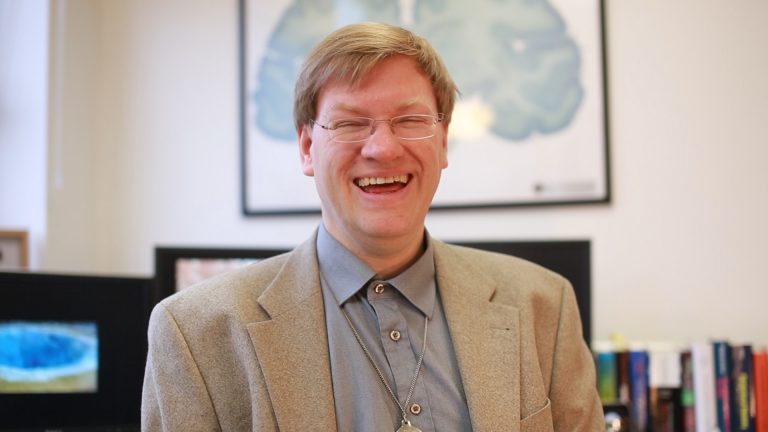Speaker: David Pearce

Pearce is the owner of BLTC Research, a website that was set up by Pearce in 1995. Based in Kemptown, Brighton, UK, the site publishes online texts in support of the biochemical and biotechnological methods by which its proponents believe sentient suffering could be abolished in future generations.
In 1998, Pearce co-founded the World Transhumanist Association (WTA) with Nick Bostrom, an Oxford philosopher. The association, which later changed its name to Humanity+, advocates transhumanism — an ideology and movement which has emerged to support the recognition and protection of the right of citizens either to maintain or modify their own minds and bodies so as to guarantee them the freedom of choice and informed consent of using human enhancement technologies on themselves and their children.
In 2002 Pearce co-founded the Abolitionist Society with Pablo Stafforini, Sean Henderson, and Jaime Savage, in order to help promote the idea of abolitionism of suffering and to discuss the implications involved with a wider range of audience.
Pearce sits on the board of Elsevier’s journal Medical Hypotheses and holds a position at the advisory board of Lifeboat Foundation.[10] He runs a web hosting company.
The Hedonistic Imperative
 The abolitionist project is hugely ambitious but technically feasible. It is also instrumentally rational and morally urgent. The metabolic pathways of pain and malaise evolved because they served the fitness of our genes in the ancestral environment. They will be replaced by a different sort of neural architecture – a motivational system based on heritable gradients of bliss. States of sublime well-being are destined to become the genetically pre-programmed norm of mental health. It is predicted that the world’s last unpleasant experience will be a precisely dateable event.
The abolitionist project is hugely ambitious but technically feasible. It is also instrumentally rational and morally urgent. The metabolic pathways of pain and malaise evolved because they served the fitness of our genes in the ancestral environment. They will be replaced by a different sort of neural architecture – a motivational system based on heritable gradients of bliss. States of sublime well-being are destined to become the genetically pre-programmed norm of mental health. It is predicted that the world’s last unpleasant experience will be a precisely dateable event.
Two hundred years ago, powerful synthetic pain-killers and surgical anesthetics were unknown. The notion that physical pain could be banished from most people’s lives would have seemed absurd. Today most of us in the technically advanced nations take its routine absence for granted. The prospect that what we describe as psychological pain, too, could ever be banished is equally counter-intuitive. The feasibility of its abolition turns its deliberate retention into an issue of social policy and ethical choice.
This feeling of absolute well-being will surpass anything contemporary human neurochemistry can imagine, let alone sustain. The story gets better. Post-human states of magical joy will be biologically refined, multiplied and intensified indefinitely. Notions of what now passes for tolerably good mental health are likely to be superseded. They will be written off as mood-congruent pathologies of the primordial Darwinian psyche. Such ugly thoughts and feelings will be diagnosed as typical of the tragic lives of emotional primitives from the previous era. In time, the deliberate re-creation of today’s state-spectrum of normal waking and dreaming consciousness may be outlawed as cruel and immoral.
Such speculations may currently sound fantastical. Yet the ideas behind this manifesto may one day be regarded as intellectually trite – albeit today morally urgent. For as the genetic revolution in reproductive medicine unfolds, what might once have been the stuff of millennialist fantasy is set to become a scientifically feasible research program. Its adoption or rejection will become, ultimately, a social policy issue. Passively or actively, we will have to choose just how much unpleasantness we wish to create or conserve – if any – in eras to come. David Pearce - the Hedonistic Imperative Chapter 1 - The Naturalisation of Heaven
Prophetic Narratives: Will Humanity’s Successors Also Be Our Descendants?
 David Pearce spoke at Humanity+ @San Francisco in 2012 – Accelerating technological progress leads some futurists to predict the imminent end of the transhuman era and the dawn of posthuman superintelligence. But what is superintelligence? How does intelligence relate to sentience? What are the Explanatory Gap, Moravec’s Paradox, and the Binding Problem? Will nonbiological machines ever be more than zombies? This talk explores three different narratives for the major evolutionary transition in prospect. In the first narrative, biological humans will rewrite our genetic source code, recursively self-edit our own minds, and bootstrap our way to full-spectrum superintelligence. Mastery of our reward circuitry will deliver life based on information-sensitive gradients of bliss. In the second, Kurzweilian narrative, cybernetic brain implants will enable humans to fuse our minds with artificial intelligence; and also allow humans to scan, digitize and “upload” ourselves into a less perishable substrate. In digital nirvana, the distinction between biological and nonbiological machines will effectively disappear. In the third scenario, most closely associated with mathematician I.J. Good, is a combination of Moore’s law and the advent of recursively self-improving software-based minds will culminate in an ultra-rapid Intelligence Explosion and an era of nonbiological superintelligence. Posthuman superintelligence may or may not be human-friendly. How strong is the supporting evidence for each of these prophecies?
David Pearce spoke at Humanity+ @San Francisco in 2012 – Accelerating technological progress leads some futurists to predict the imminent end of the transhuman era and the dawn of posthuman superintelligence. But what is superintelligence? How does intelligence relate to sentience? What are the Explanatory Gap, Moravec’s Paradox, and the Binding Problem? Will nonbiological machines ever be more than zombies? This talk explores three different narratives for the major evolutionary transition in prospect. In the first narrative, biological humans will rewrite our genetic source code, recursively self-edit our own minds, and bootstrap our way to full-spectrum superintelligence. Mastery of our reward circuitry will deliver life based on information-sensitive gradients of bliss. In the second, Kurzweilian narrative, cybernetic brain implants will enable humans to fuse our minds with artificial intelligence; and also allow humans to scan, digitize and “upload” ourselves into a less perishable substrate. In digital nirvana, the distinction between biological and nonbiological machines will effectively disappear. In the third scenario, most closely associated with mathematician I.J. Good, is a combination of Moore’s law and the advent of recursively self-improving software-based minds will culminate in an ultra-rapid Intelligence Explosion and an era of nonbiological superintelligence. Posthuman superintelligence may or may not be human-friendly. How strong is the supporting evidence for each of these prophecies?Interviews
Alleivating Suffering & achieving Hedonic Zero / Altruism
The Naturalisation of Heaven – The Lotus Eaters – Happiness & Motivation
– p.114 Ethics Matters by Peter and Charlotte Vardy – SCM Press, 2012David Pearce







